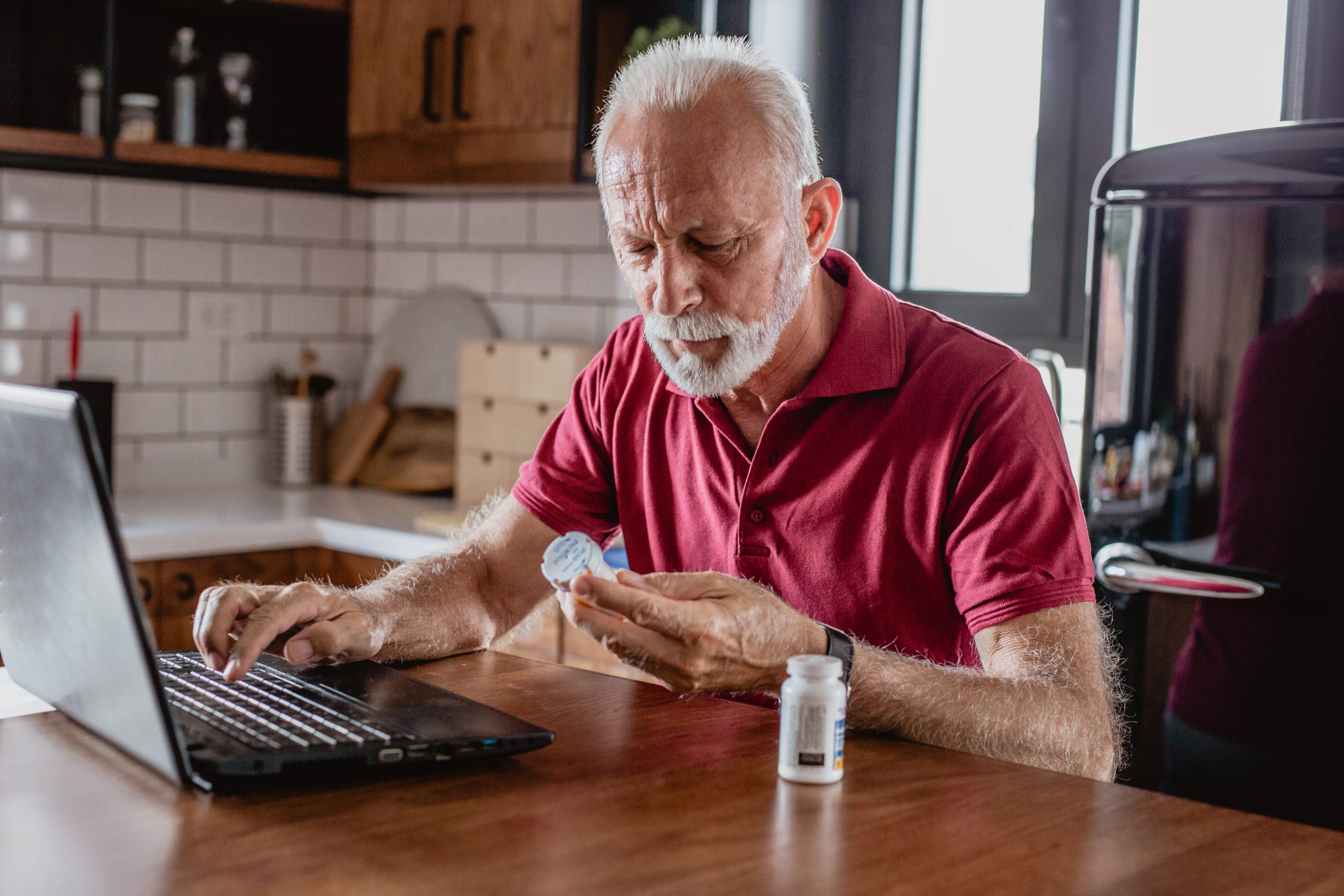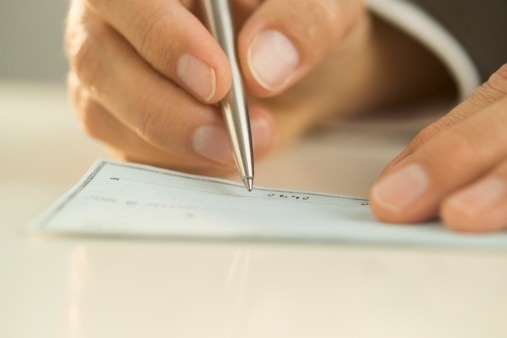Lurking in the shadows of the internet and behind blocked phone numbers, scammers attempt to trick vulnerable populations into handing over money and sensitive personal information. Their targets can include older or younger folks who may not be as experienced online and aren’t as adept at detecting fraud.
The coronavirus pandemic has given scammers an opportunity to put a new twist on their old tricks, with the disruptions to our normal lifestyles inspiring a new wave of scams. Our desire to raise money and help others has prompted the emergence of phony charities, while our need to expand COVID-19 testing and find a vaccine has motivated a slew of fake and unsanctioned “cures.”
But scammers aren’t so scary when you understand their strategies and know ways to keep your money safe. Here’s a guide to avoiding coronavirus scams and reporting fraudsters to the proper authorities:
How Do I Know If Someone Is Scamming Me?
With the social distancing guidelines in place, you’ve likely been doing much of your shopping and banking online or by phone. If you’re worried about potential scams, just remember the first rule: Scammers usually come to you first.
Some scammers pose as representatives from organizations that you expect to hear from. Though your credit card companies and the IRS may contact you with reminders that a payment is due, they won’t reach out looking to collect your personal information.
“Even if you receive a call from a number that appears to be genuine — such as the IRS or your bank — it is important to remember that scammers can use number spoofing tools to trick you,” says Ray Walsh, a researcher and writer at ProPrivacy, a digital privacy education and review site.
You should delete any messages asking you to transfer money or send your bank account information, according to Walsh.
“Official services will not contact you for this kind of information, because they will only collect this kind of data using secure website portals with high levels of security,” he says.
Other red flags include:
- You are pressured to take immediate action.
- You are contacted by someone who claims that you’ve won a prize from a contest you didn’t sign up for. You might also be asked to pay a fee to receive the prize.
- You are called by someone who immediately asks, “Can you hear me?” Scammers want to record you saying “yes” as proof that you’ve consented to a payment.
- You are asked to provide your full Social Security number, mother’s maiden name, or bank account numbers.
- You are asked to click on a link in an email to verify your bank account information.
“If you receive a call or message that you are concerned might be a scam, hang up at once and contact the service directly to ensure you are speaking to a genuine representative from that organization,” Walsh says.
Common Coronavirus Scams To Watch Out For
Scammers are hoping that the pandemic will make their targets more susceptible to their lies. However, you can protect yourself by learning the telltale signs of fraud and help protect others by knowing how to report a scammer. Below are some current coronavirus scams, according to the U.S. government.
While there are different resources you should use to report each type of scam, you can report all coronavirus-related scams to the National Center for Disaster Fraud at 866-720-5721 or [email protected].
Charity Scams
The COVID-19 outbreak has resulted in unemployment numbers not seen since the Great Depression, prompting various efforts to provide financial relief for those who are out of work. Over $10 billion has already been raised in the global philanthropic effort to combat COVID-19, according to the nonprofit transparency organization Candid.
But there has been a dark side to the fundraising efforts. Scammers are known to take advantage of compassion and generosity during a disaster or public health crisis. They either make up fake charities or pose as real organizations to try to trick you into handing over money.
How to avoid charity scams
Always be sure to thoroughly research a nonprofit before donating. A great place to start is by getting information from a charity watchdog organization like CharityWatch, which evaluates the efficiency and accountability of different nonprofits. It can also be helpful to search for any formal complaints or negative reviews associated with the charity’s name.
When it comes to how you pay, the Federal Trade Commission says to avoid people who ask for donations via cash, gift cards, or wire transfers, which is indicative of a scam. It’s safer to pay by credit card or check so that you’re less liable for fraud and the money is traceable.
It’s also important to pay close attention to the details you’re given before you take out your wallet. Scammers have been known to use names that closely resemble legitimate charities, make calls look like they’re coming from a local number, and rush you into donating quickly, according to the FTC.
Scammers may falsely tell you that your donation is tax-deductible when it isn’t. You can verify their claims by searching for tax-exempt organizations in the IRS database.
How to report charity scams
You can report charity scams through the FTC complaint assistant and your state’s consumer protection office. Additionally, you can report coronavirus-related charity scams to the FBI.
Government Check Scams
In response to the pandemic, the IRS has extended the filing and payment deadline for tax returns to July 15. Under the Coronavirus Aid, Relief, and Economic Security Act, which passed in March, the IRS is also sending $1,200 payments to taxpayers who make less than $75,000 per year, with individuals earning up to $99,000 per year receiving reduced payments.
Scammers are attempting to take advantage of any confusion surrounding these changes by posing as the IRS and charging fees for you to supposedly get your stimulus check or gain access to it faster. In email phishing scams, scammers reach out and try to steal your personal information by asking you to “sign up” for your relief check.
How to avoid government check scams
Scammers will make it sound like you need to take action in order to access your stimulus check. They may try tricking you into providing your personal information, such as your Social Security number, bank account information, or PayPal account.
However, as long as you filed your 2018 or 2019 taxes and are eligible based on your income, then you will automatically receive your relief check. The FTC emphasizes that nobody has been granted early access, so be suspicious if someone contacts you and claims otherwise.
If you haven’t received your stimulus payment and are wondering when you can expect it, remember that you should only deal directly with the IRS. You can track your payment status through the agency’s “get my payment” page. While it’s too late to enter your information for direct deposit, the IRS is continuing to mail out paper checks.
How to report government check scams
If you’ve been contacted by someone trying to access your stimulus payment, you can report the government check scam to the FTC to help stop the scammer from taking advantage of others. You can also submit a complaint through the FBI’s Internet Crime Complaint Center if the scammer reached out online.
Banking Scams
Scammers are using the public health crisis to prey on people’s fears that banks — and their savings — could be in jeopardy. Someone may contact you while posing as a representative from your bank or the Federal Deposit Insurance Corporation. The scammer will claim that you won’t be able to access your money, and they will ask for personal information that can be later used for fraudulent purposes.
Your funds remain safe in FDIC-insured banks up to $250,000 per institution, despite any false rumors that scammers may be spreading. The FDIC was established during the Great Depression to provide deposit insurance coverage and help rebuild trust in the U.S. banking system. In fact, the FDIC says, “Since 1933, no depositor has ever lost a penny of FDIC-insured funds.”
How to avoid banking scams
Due to the coronavirus pandemic, the FDIC released a statement in March reminding Americans that the agency will never contact you and ask for personal details like passwords, Social Security numbers, bank account information, and credit and debit card numbers.
Scammers may email, call, text, or message you and pretend to be from your bank. But remember that your bank already has your personal information and account numbers, so you’ll know it’s a scam if you receive this type of correspondence.
How to report banking scams
If you’ve been targeted by a scammer or have other questions about the security of your deposits, you can dial the FDIC’s call center at 877-275-3342 from 8 a.m. to 8 p.m. EST between Monday and Friday.
Grandparent and Military Member Scams
Some scammers call older people and pretend to be their grandchild or a member of the military who is in trouble or sick due to COVID-19. The scammer fakes a sense of urgency to trick you into sending money before you realize that the situation isn’t real.
Grandparent scams and other family emergency scams aren’t new, but the COVID-19 outbreak has made these pleas for help particularly compelling. With both the northern and southern borders of the United States closed to nonessential travel as of May 28 — and other local travel restrictions in place — it may not seem so far-fetched for a family member to find themselves in trouble.
“Scammers are extremely astute when it comes to creating carefully constructed scripts that use people’s desires, fears, and emotions as a way to make them act,” Walsh says. “It is this compassion and empathy that scammers seek to exploit with many of the scams currently in circulation.”
How to avoid grandparent and military member scams
These types of scams can be especially convincing and driven by emotion. Expect the scammer to try pressuring you into transferring the money immediately and even swear you to secrecy, which prevents the word from getting out to real family members and friends who can debunk the scammer’s story.
If you suspect fraud, the FTC offers these tips on how to respond to a grandparent or military member scam:
- Resist the instinct to act immediately.
- Verify the person’s identity by asking specific, personal questions.
- Call a family member or friend (using a phone number from your existing contacts) to verify the status of the person who supposedly contacted you — even if you’ve been sworn to secrecy.
- Don’t send cash, money transfers, or gift cards.
How to report grandparent and military member scams
If you receive any calls relating to a grandparent or military member scam, you can file a complaint with the FTC and your state attorney general.
Testing, Vaccine, Treatment, and Cure Scams
Scammers have been peddling illegally marketed and unproven products that claim to diagnose, prevent, and treat COVID-19. Some of them are even offering a “coronavirus cure,” which the Food and Drug Administration has clearly stated does not exist.
In March, the FTC and FDA announced that warning letters were sent to seven different companies for selling products that they claimed could treat or prevent COVID-19. The products — which included colloidal silver, essential oils, and teas — were either unapproved or misbranded, with no evidence proving their effectiveness.
How to avoid testing, vaccine, treatment, and cure scams
Though the FDA has approved certain at-home sample collection kits for COVID-19 diagnostic testing in laboratories, you should evaluate your need for a coronavirus test at home and thoroughly do your research before seeking one.
As of May, the agency has not authorized any vaccines to prevent COVID-19 or drugs to treat the disease. The agency cautions the public to beware of any product marketed as a “miracle cure” or a “quick fix,” since most conditions and diseases can’t be treated quickly.
The companies that received warning letters from the FTC and FDA include Vital Silver, Quinessence Aromatherapy Ltd., N-Ergetics, GuruNanda LLC, Vivify Holistic Clinic, Herbal Amy Inc., and The Jim Bakker Show. Even though the FTC says each of these companies has since removed unproven claims from their ads, you should remain on the lookout for new scams that may pop up over the course of the pandemic.
In general, the FDA says that you should be skeptical of products that claim to treat a wide variety of diseases and rely on personal testimonials over scientific evidence.
How to report testing, vaccine, treatment, and cure scams
Due to the potentially serious consequences of fake medical treatment, you may want to report coronavirus testing, vaccine, treatment, and cure scams to the FBI. You can also file a complaint with the FTC.
Price Gouging Scams
Price gouging occurs when vendors unfairly inflate prices on products that they know are in high demand. During the coronavirus pandemic, this can include personal protective equipment like face masks, along with hand sanitizer and essential household items.
How to avoid price gouging scams
When retailers have difficulty keeping the shelves stocked with in-demand items — especially things that help protect your family’s well-being — you may be willing to pay more so you can get your hands on certain products. However, it’s illegal for someone to take advantage of you by dramatically overcharging in a state of emergency, so don’t take out your wallet if you believe an item is unfairly priced.
What constitutes price gouging can vary by state. For example, California doesn’t allow prices on goods to increase by more than 10% during an emergency — unless it actually costs more to produce or sell the product — while Alabama prohibits prices from being raised by more than 25%.
How to report price gouging scams
You can report any incidences of price gouging to your state attorney general using this directory.
The Bottom Line
While the coronavirus pandemic may have given a fresh angle to old scams, it’s important to be protective of your personal information online, even during normal times. Keep these reminders and tips in mind:
- Make sure to research any charity or other nonprofit organization before donating money.
- People who filed their 2018 or 2019 taxes won’t need to do anything to receive their stimulus check, and nobody has early access.
- Your bank and the IRS will never contact you and ask for personal information, including account numbers and your Social Security number.
- Verify the identity and story of anyone who’s asking you to send financial help immediately.
- The FDA hasn’t approved any vaccines, treatments, or cures for COVID-19, so avoid people who are advertising a “quick fix.”
- During a state of emergency, it’s illegal for sellers to raise prices on goods beyond a certain point.
If you do encounter a scam, reporting it can help prevent others — especially more vulnerable populations — from falling into the same trap. By remaining alert and protective of your personal information, you’ll already be one step ahead of any scammers.



